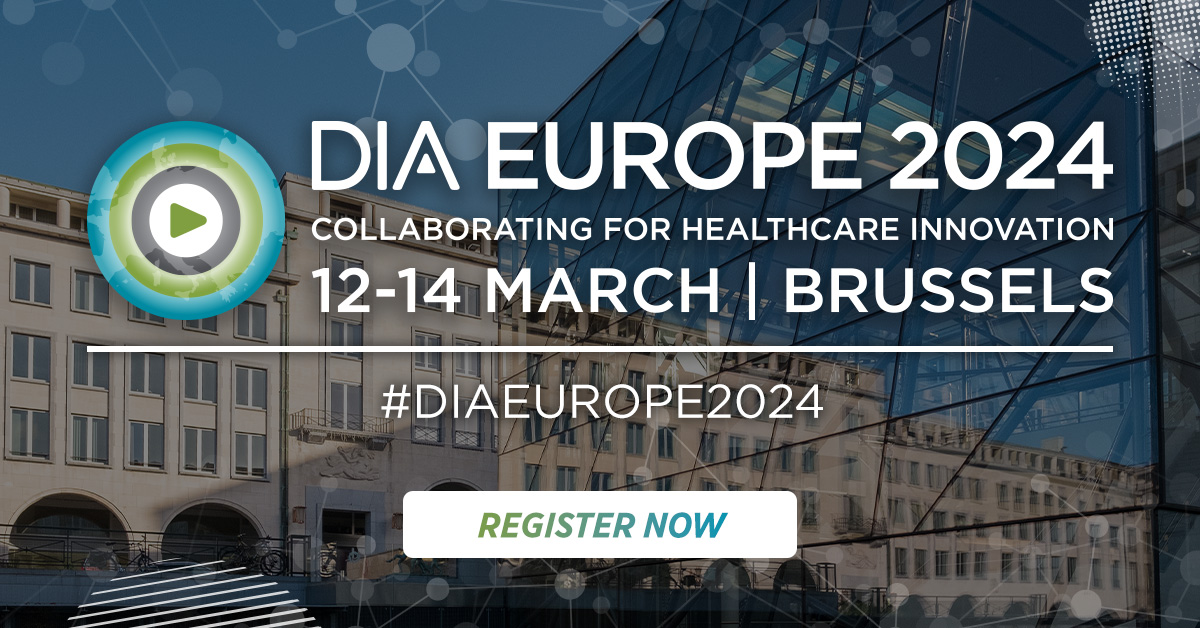Table of Contents

- The Future of Healthcare Hinges on Inspiring Tomorrow’s Leaders Today
- Feature Articles
- Left to Interpretation: Navigating FDA’s Revised Guidance on SIUU Communications
- Large Language Models: Extracting and Summarizing Regulatory Intelligence from Health Authority Guidance Documents
 Video: DIA Patient Partner John Linnell: More Than Participants
Video: DIA Patient Partner John Linnell: More Than Participants- Why So Complex? Ensuring Continued Access to Medicines by Simplifying Market Authorization Renewals Globally
 Video: DIA Patient Partners Desiree Walker and Roberta Albany: Health Equity is Not a Luxury
Video: DIA Patient Partners Desiree Walker and Roberta Albany: Health Equity is Not a Luxury- Life Sciences 2024ward
- Translational Medicine Q&A: What’s in Store for 2024?
- Predictions for the Life Sciences 2024: Science and Technology
- Predictions for the Life Sciences 2024: Regulatory Science
- Commentary
- Is the Proposed EU Pharmaceutical Legislation Truly Supporting Innovation in Europe?
- AROUND THE GLOBE
- ECOWAS Joint Assessment Procedure: Industry Awareness and Perception of the Procedure
- Rare Disease Moonshot: Europe’s Public-Private Coalition to Erase the Rare Disease “White Spots”
- Japanese Academic Clinical Data Can Now Be Used for Drug Registration
- Executive Leadership
- Editorial Board
Subscribe
Love Global Forum’s new online format? Subscribe today and never miss an issue.
Editorial Board
Content stream editors
Gary Kelloff US National Institutes of Health
Ilan Kirsch Adaptive Biotechnologies Corp.
regulatory science
Isaac Rodriguez-Chavez 4Biosolutions Consulting
Patient engagement
Natasha Ratcliffe Patient Engagement Specialist
Thomas Smith Independent Patient Consultant
Data and Digital
Lisa Barbadora Barbadora Ink
Editorial Staff
Sandra Blumenrath, Managing Editor, Scientific Publications DIA Scientific Communications
Chris M. Slawecki, Managing Editor, Global Forum DIA Scientific Communications
Linda Felaco, Copy Editor and Proofreader
Regional Editors
David Mukanga Bill and Melinda Gates Foundation
ASEAN
Jin Shun Sandoz
AUSTRALIA/NEW ZEALAND
Richard Day University of New South Wales, Medicine, St. Vincent’s Hospital
CHINA
Ling Su Shenyang Pharmaceutical University, Lilly Asia Ventures
Europe
Julie O’Brien Pfizer
INDIA
J. Vijay Venkatraman Oviya MedSafe
LATIN AMERICA
Cammilla Gomes Roche
US
Ebony Dashiell-Aje BioMarin
DIA Membership
Bringing together stakeholders for the betterment of global health care.
Executive Leadership
Global Chief Executive, DIA
hat if you could witness the power of science firsthand?
Imagine the case of Maria, an adolescent girl who takes the stage in front of a crowd full of high school, college, and postgraduate students. Just months ago, she was confronting mortality head-on, her body weakened by leukemia. Now, having no remaining evidence of disease, she shares her extraordinary journey.
Left to Interpretation: Navigating FDA’s Revised Guidance on SIUU Communications
AS Pharma Advisors
Montana State University
Mark & Robyn Jones College of Nursing
4Biosolutions Consulting
n October 2023, the FDA released a revised draft guidance, reshaping the communication landscape between firms and healthcare providers (HCPs) regarding scientific information on unapproved uses (SIUU) of medical products. This guidance supersedes the 2014 version, spotlighting the impact of off-label or separately indicated medical products on clinical decision-making. The update marks a shift by acknowledging the potential use of real-world evidence (RWE) and data (RWD) in providing scientifically sound information on unapproved products. Incorporating electronic health record (EHR) data opens avenues for broader clinical insights, but challenges like data quality variability and reporting bias require careful consideration.
Venkatraman Balasubramanian
Orion Innovation
McKinsey Report suggests that Generative AI could unlock potential value of about 2.6 percent to 4.5 percent of annual revenues ($60 billion to $110 billion) annually on the pharmaceutical and medical product industry.
IA Patient Partner John Linnell serves on the Board of Directors for the US COPD Coalition and as an Advocacy Captain for the COPD Foundation, works with the nonprofit Right2Breathe, and has been appointed to the Patient Engagement Collaborative for the FDA. In this interview from our DIA Global Annual Meeting 2023 in Boston, John shares the vision, purpose, and power of his patient advocacy with DIA Scientific Affairs Specialist Maria Paula Bautista Acelas.
Christina Lee, Melly Lin, Suat Gnoh Por
Roche
ithin a defined period after the initial approval of a medicinal product, many regulatory authorities require the renewal of its marketing authorization to ensure that the medicine’s safety, quality, and efficacy continue to meet the standards set by national regulations.
IA Scientific Affairs Specialist Maria Paula Bautista Acelas discusses the importance of effective patient communication and engagement with DIA Patient Partners and cancer survivors Desiree Walker and Roberta Albany in this interview from our DIA Global Annual Meeting 2023 in Boston. Desiree is a member of the MRCT of Brigham and Women’s Hospital and Harvard’s Collaborative Cross-Industry Glossary for Clinical Research Workgroup and works extensively with the Young Survival Coalition. “My goal has been and continues to be that health equity is not a luxury but it’s an option for all,” she explained. “I’m involved in patient advocacy, but I also do research advocacy as well as legislative advocacy. We need the research, the evidence-based information, because that’s also needed for the policy conversations.”

t the end of the year, it’s time once again for our annual conversation with our DIA Global Forum co-editors for Translational Science and Medicine, Dr. Gary Kelloff, who has more than 40 years of cancer research experience at the US National Cancer Institute; and Dr. Lanny Kirsch, Distinguished Physician-Scientist and SVP of Translational Medicine at Adaptive Biotechnologies. Alberto Grignolo, editor-in-chief of Global Forum, sat down with them to look back and ahead and share their view on which 2023 milestones are likely to make an impact within translational medicine in 2024 and beyond.

e asked members of DIA’s scientific and publications communities to share their predictions for the life sciences in the coming year. All responded creatively, although some responded anonymously. We hope you enjoy reading these predictions now AND revisiting them later to see how many came true in 2024.

4Biosolutions Consulting
he landscape of the life sciences will continue to evolve in 2024, propelled by technological advancements, research breakthroughs, and regulatory adaptations. As we stand in front of 2024, exploring the imminent trends in regulatory affairs, FDA policies, and clinical research becomes paramount. This article aims to illuminate unfolding regulatory developments in drugs, biologics, and medical devices, and their potential impact on clinical trial participant care, regulatory affairs professionals, and public health. By appraising the current landscape of medical product development, it endeavors to present a comprehensive view of the path ahead.
Regulatory Affairs Postgraduate, Novartis
ublication of the European Commission’s (EC) legislative proposal for the review of the general pharmaceutical legislation (GPL) at the end of April 2023 has been heralded as a “once in a generation” opportunity to make medicines more available, accessible, and affordable. The EC considers that the proposals will support innovation and boost the competitiveness and attractiveness of the EU pharmaceutical industry while promoting higher environmental standards. However, the published proposals introduce changes that would have a major impact on the global competitiveness of the EU market as well as erode incentives for investment in innovation.
Sybil N.A. Ossei Agyeman Yeboah
West African Health Organization, Burkina Faso
Bill and Melinda Gates Foundation
rom 2018 to April 2022, the regional ECOWAS Joint Assessment Procedure (JAP) under the West Africa Medicines Regulatory Harmonization (WA-MRH) Initiative received twenty-two (22) dossier submissions from manufacturers within and outside the ECOWAS region, a relatively lower number than anticipated.
European Federation of Pharmaceutical Industries and Associations (EFPIA)
INSERM
European Joint Programme on Rare Diseases
International Rare Diseases Research Consortium
EuropaBio
European Clinical Research Infrastructure Network-European Research Infrastructure Consortium (ECRIN-ERIC)
Critical Path Institute – Europe
European Advanced Translational Research Infrastructure in Medicine – European Research Infrastructure Consortium (EATRIS-ERIC)
European Confederation of Pharmaceutical Entrepreneurs (EUCOPE)
EURORDIS – Rare Diseases Europe
Biobanking and Biomolecular Resources Research Infrastructure – European Research Infrastructure Consortium (BBMRI-ERIC)
Montsouris Consilium
he knowledge and infrastructure required to unlock rare disease “white spots,” diseases where there is currently no science or translational capability, call for a different strategic paradigm. The mission of the Rare Disease Moonshot is rooted in boosting public-private collaborations.
Keio University Hospital
apan’s current regulatory framework for investigator-initiated trials (IITs) of drug candidates seems fragmented. IITs are categorized as either commercial or noncommercial.





